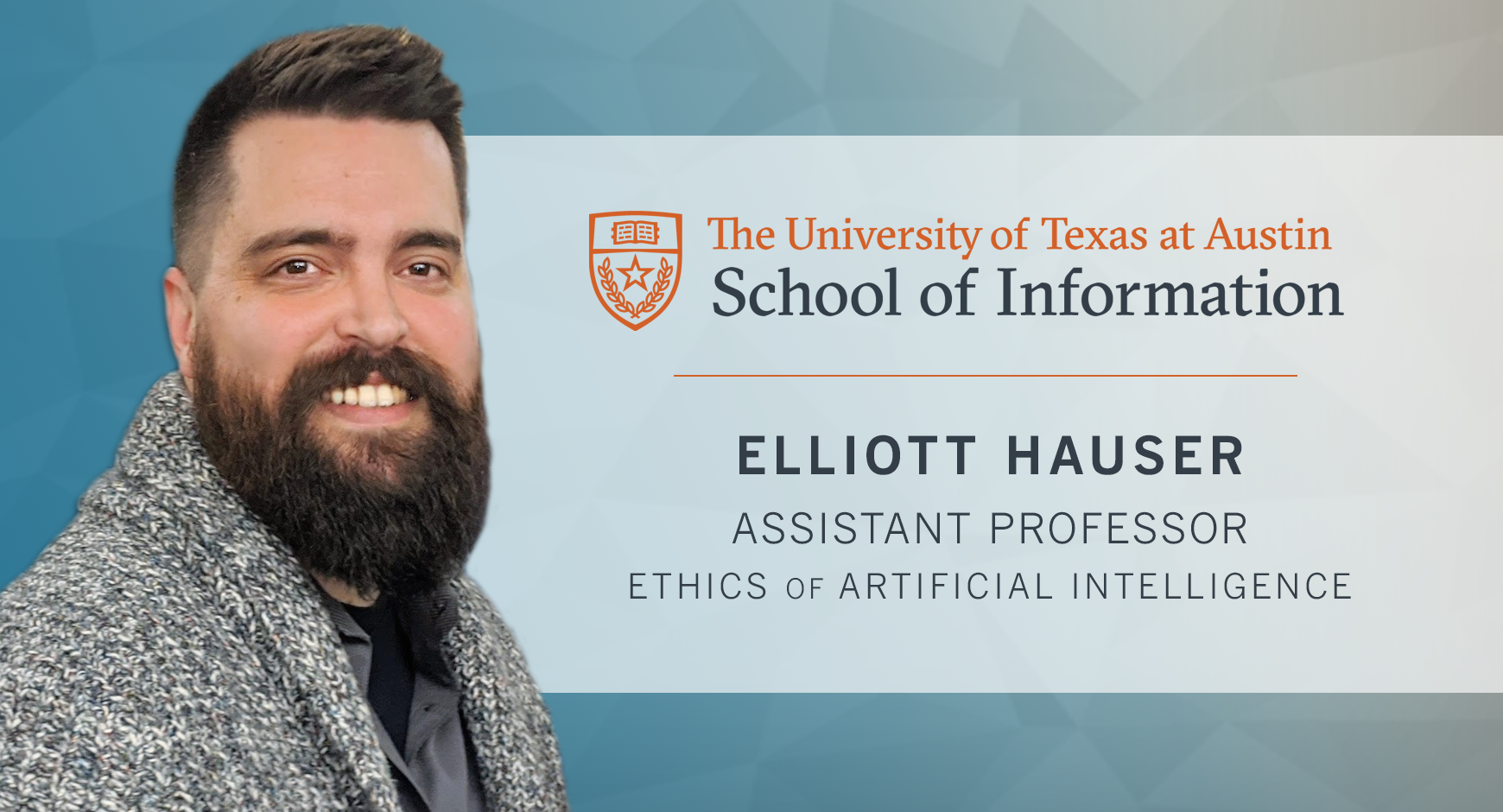
The University of Texas at Austin School of Information is pleased to welcome Dr. Elliott Hauser, who will be joining us as an assistant professor in August 2020. He comes to the iSchool from the University of North Carolina at Chapel Hill, where he earned his Ph.D. in Information Science. Hauser is one of four new faculty members joining the University of Texas at Austin as part of the Ethics in AI cluster hire associated with Good Systems, a UT Grand Challenge, an initiative focused on building technology ethics expertise across the UT Austin campus.
“My work aims to better understand the nature of information and algorithmic systems, how they condition social reality, and how we might intervene to make social reality more just.”
“My work aims to better understand the nature of information and algorithmic systems, how they condition social reality, and how we might intervene to make social reality more just.”
Hauser’s research explores the relationship between information, certainty, and truth. “My work aims to better understand the nature of information and algorithmic systems, how they condition social reality, and how we might intervene to make social reality more just,” he said. “Information systems are increasingly used to determine what is true and what is false. By taking a pragmatic approach to that process and developing a framework for analyzing the roles of people and systems in the production of certainty, I aim to tackle difficult phenomena that we see happening regarding the use of information in government, health, and many other contexts.” For his dissertation, Hauser developed a taxonomy of the roles that information systems can play in the production of certainty and then examined modern computational timekeeping as a component of social reality that is created as it is described. This research was awarded the 2019 Litwin Books Dissertation Research Award for work in the philosophy of information.
As an instructor, Hauser applies the sociotechnical perspective he uses in his research to his teaching by emphasizing that technologies such as programming languages are created and coevolve with the communities that surround them. His teaching focuses on helping students to understand the social contexts in which technologies develop and operate, and to equip them to effectively use these technologies for the benefit of others. “Programming as a profession, as an artifact, and as a discipline is really socially constructed. Programming languages have a history. People where involved in creating the language and modifying it over time. There are communities like Meetup groups and conferences. All of these cultural influences go into the experience of writing a program and being in a technical community,” Hauser said.
“Typically, the educational approach to programming does not acknowledge the culturally conditioned aspect of it. If I were to teach a human language — like Spanish or Mandarin — without talking about the culture within which that language was developed and the ways in which it’s used in cultural context, then it wouldn’t make a lot of sense. A lot of times that’s the experience students have with programming languages. They have a thought in their native language and try to transliterate it into whatever code that they know, but the computer doesn’t really get it. In my classes, we try to develop empathy not just for how the computer interprets our input, which is mediated through a sociotechnical system (in this case, the programming language), but also for the people who wrote the programming language. Additionally, I try to have an inclusive ethos in my classrooms where my students and I build a supportive technical community together within that course.”
Hauser is excited to bring his sociotechnical approach to programming instruction to the iSchool in a foundational Introduction to Programming course that would complement other technical courses with a shared core of knowledge in the existing curriculum.
Dean Eric T. Meyer said, “I am really delighted to have Elliott join us. He will strengthen our work on the ethics of AI, and comes to us from a top-notch peer institution. He has already started engaging extensively with the UT Austin iSchool community, so I expect to see him make a strong positive impact quickly.”
In addition to a Ph.D. and M.S. in Information Science from the University of North Carolina at Chapel Hill, Hauser also holds a B.A. in art history from Duke University. To learn more about Dr. Elliott Hauser, visit his website: elliotthauser.com.
